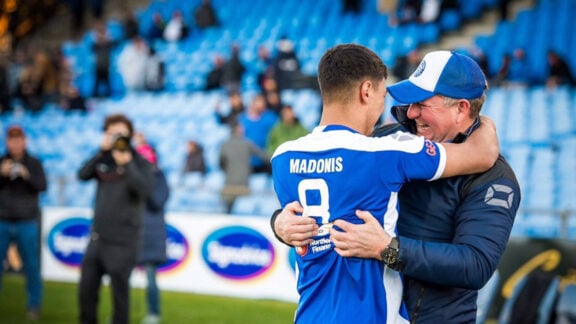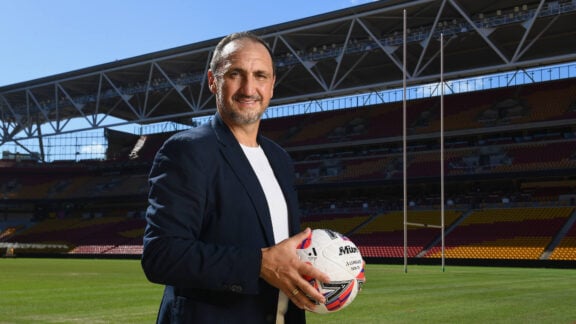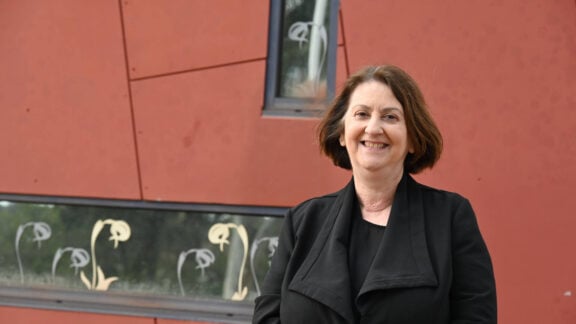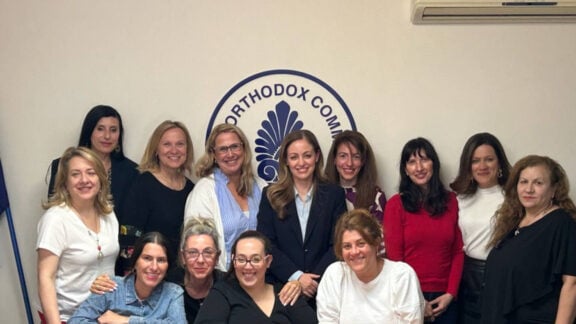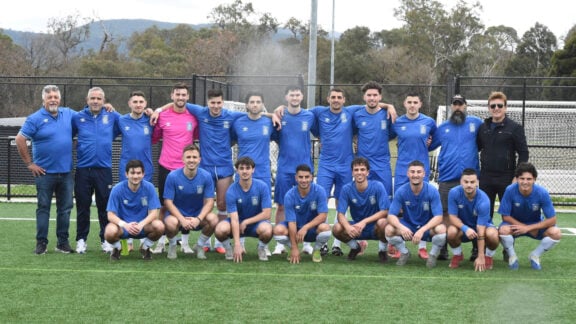The third international conference of the diaspora entitled Contemporary and Diachronic Aspects of the Hellenic Diaspora, which but for the COVID pandemic was to have been held last year, took in Darwin over the weekend.
One of the conference conveners Associate Professor George Frazis for Greek and Hellenic Studies at Charles Darwin University said more than 60 contributors including academics and researchers from Australia, Europe, Africa and North America took part in the conference which is a collaborative effort by the University of Darwin with the University of the Aegean on Rhodes and the University of Macedonia in Thessaloniki.
Greek Orthodox Archbishop Makarios of Australia was a keynote speaker who addressed the conference last Thursday on the theme Orthodox Church and Greek Diaspora: Historical Overview, Contemporary Situation and Future Prospects. He spoke about the apostolic and social role of the Church in the diaspora. He highlighted the decisive role the Church had played in preserving the identity and cohesion of Greek migrants to Australia.
Archbishop Makarios said the Church was “communion and apostolic” and that it was present in the modern challenges facing humanity, promoting the teaching of the Gospels and continuing the work of the Apostles according to the command given to them by Christ. He also recalled the decisions reached by the Pan-Orthodox Synod held in Crete in 2016.
This year the early part of the conference was dedicated to on common experiences shared by Greeks in their history of being colonised, marginalised and the forcible removal of children to serve Ottoman armies and bureaucracies which had parallels in the experiences of Australia’s Indigenous communities and the Stolen Generation.
“You could see there was an appreciation by Indigenous academics of the common elements in our histories,” Prof Frazis told Neos Kosmos.
One of the keynote speakers was Aunty Eileen Cummings, one of the Stolen Generation children and who spoke about her experiences. She told the audience that the people who helped the Stolen Children once they had grown up were the Greeks and Chinese of Darwin who gave them work and helped them to find their way in life.
Dr Phil Kafcaloudes, author of Someone Else’s War, gave two presentations on the history of his paternal and maternal sides of the family. His grandfather Sotiris Kafcaloudes, came to Darwin from Kastellorizo in 1915 to escape the constant bombardment of the island from the Turkish mainland. He was as one of many Greeks who were brought in to work on the railway line out of Darwin.
“The conference gave me an opportunity to make many connections. I learnt a lot more not only of the Greek diaspora but also about my grandfather’s story,” Dr Kafcaloudes told Neos Kosmos.
Helen Zahos who is based in the Gold Coast spoke at the conference about her experiences as a Greek child growing on the remote island of Groote Eylandt on the Gulf of Carpentaria.

Her father had taken the family to the island from Melbourne when he was offered work on the island. Ms Zahos was on the island until the age of 14. Her mother taught her and her siblings to speak Greek.
“I have also lived in Darwin and it was good to see the city being showcased in the conference. The opening night was attended Lord Mayor of Darwin, Cr Kon Vatskalis, members of Darwin’s Greek community and there were Greek dancers. It was lovely,” Ms Zahos told Neos Kosmos. “I was also impressed by the calibre of the people who spoke at the conference.”
Prof Frazis said work was under way to compile a book from the contributions from last week’s conference which would be ready in late 2023 or early 2024.
He said the next conference, global circumstances allowing, would resume the format of the first two conferences with the first segment of the conference to be held in Darwin in early June 2024, the second, under the auspices of the University of Rhodes, in late June, and the final leg of the conference to take place at the University of Macedonia in Thessaloniki in mid-July.

